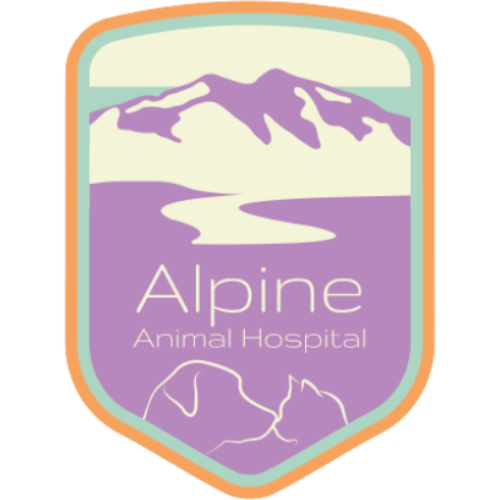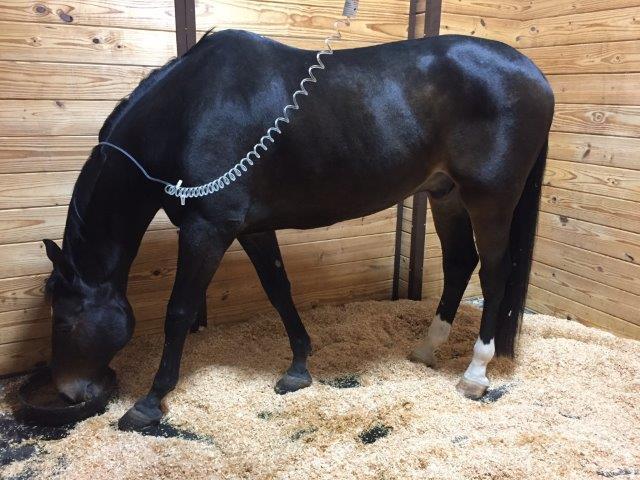by Evelyn Iacono, DVM
As the seasons change and the temperatures drop, the numbers of winter colic increase. Decreased temperatures, change in feed, reduced exercise, and decreased water intake all play a large part in contributing to colic, especially impaction colic. Click here to learn more about how to help avoid your horse becoming ill this winter.
The combination of dehydration, decreased forage, and inactivity all play a role in causing the dreaded ‘colic’. The accumulation of feed within your horse’s colon causes an impaction which manifests itself as abdominal pain. Early signs to watch for are decreased appetite and thirst and decreased manure production or hard manure. Other signs such as lying down or rolling, flank watching, and pawing are an indication that the colic is worsening.
To help avoid winter colic, follow these easy tips:
1.Provide plenty of fresh, water: As the old adage goes “You can lead a horse to water, but you can’t make him drink”, especially rings true in the winter. Horses are less inclined to drink water as the temperature dips, and even more so when the water is cold. Luckily there are a number of things we can do to provide water, and encourage them to drink it. Water buckets can freeze within 6 hours, meaning your horse may go all night without a drink, so it is important to provide an insulated bucket, trough heater, or simply filling the bucket with hot water a few times a day to reduce freezing. Removing blocks of ice from buckets or troughs a few times a day will also help slow the freezing process. Additionally, adding water to your horse’s grain to make a mash or having access to a salt block or electrolytes will encourage water consumption.
2.Provide plenty of high quality forage: In the winter, it is common for the staple of a horse’s diet to become hay, which replaces water-rich grass from pasture. While hay is an important aspect to a horse’s diet, it can contribute to impaction colic if not fed correctly. Increased hay combined with decreased water intake and longer time period between meals (which slows gut motility) can be a perfect storm for an impaction colic. To avoid intestinal blockage provide your horse continual access to forage or at least more frequent feedings. Slow feeder hay nets are one way to provide constant access to forage, while keeping your horse entertained. Studies have shown that poor quality hay increases the risk as well. Horses should eat at least 2% of their bodyweight in hay, per day.
3.Do not over feed grain: As winter rolls in, horses use more calories to stay warm, and keeping condition on those “hard keepers” is a battle many of us face. Common sense might lead us to believe that feeding more energy dense grain will combat weight loss. Unfortunately, this can also lead to increased risk of developing colic. Increased high calorie grain can ferment in a horse’s cecum causing “gas colic”, which will again lead to abdominal pain. Luckily, adding high quality hay to their normal diet will actually help them stay warm and keep on weight.
4.Provide ample turnout or exercise: Increased risk of colic is directly correlated to increased time spent in a stall. Horses’ gastrointestinal system was designed for continual grazing and walking, and when this is disrupted, gut motility slows and colic incidence increases. Providing pasture allows time for your horse to walk and graze, even if pasture is limited. Making small hay piles in a paddock will encourage your horses to eat while walking, mimicking the natural grazing mechanism if no pasture is available. As long as your horse is healthy, has an ample hair coat or appropriate blanket, and access to shelter, they can comfortably live outside in the winter months. If your horse cannot be outside, simply hand walking in the aisle can help your horse’s gut motility. Physical activity is also key to regulating gut movement, so exercising your horse in an indoor arena can also be a way to accomplish this and avoid the buildup of undigested feed material causing an impaction.
The winter months can be intimidating for many horse owners, but these simple tips will help keep your horse happy and healthy all season long. If you have any questions or concerns about avoiding winter colic, or any other health care needs, please do not hesitate to give us a call.

